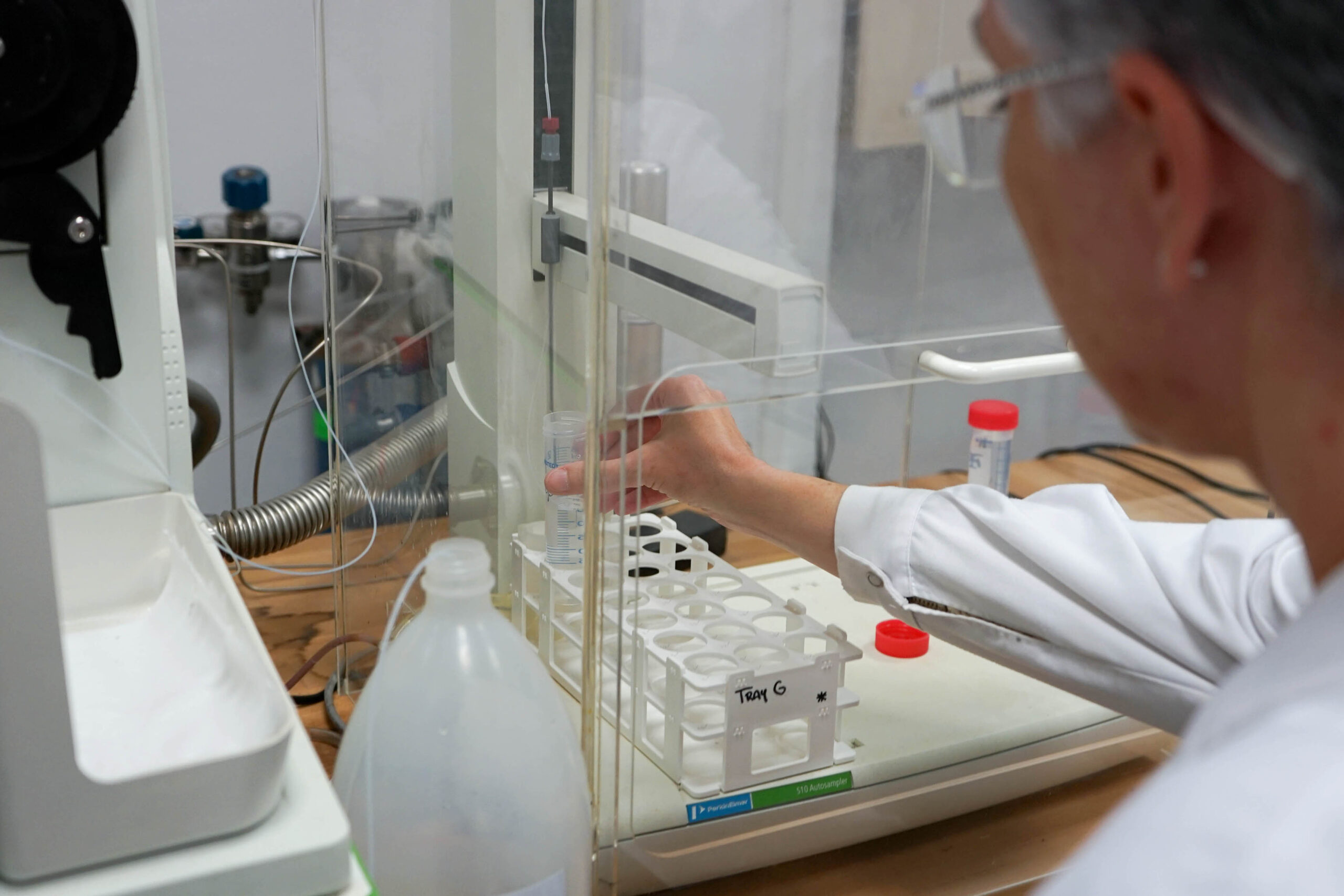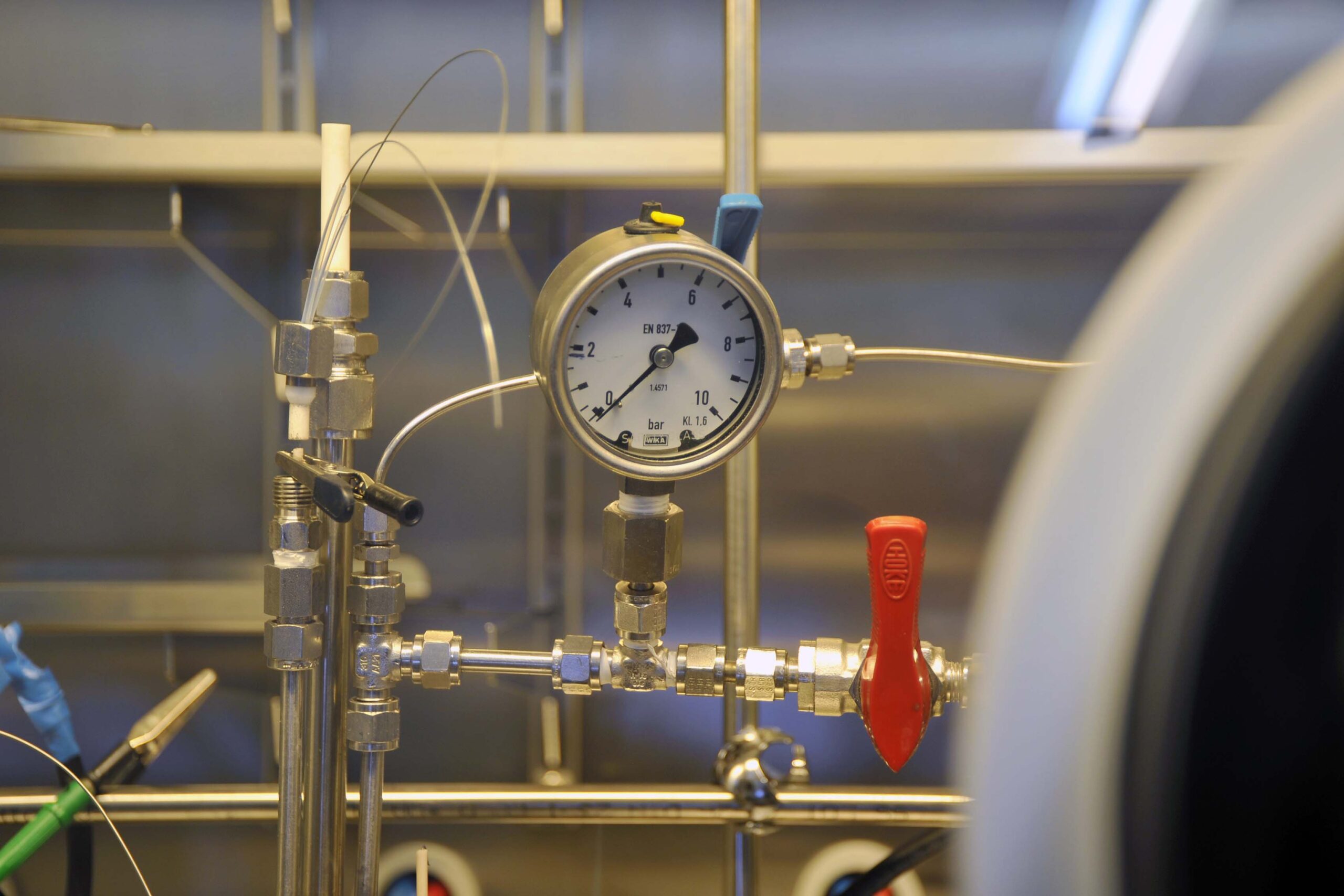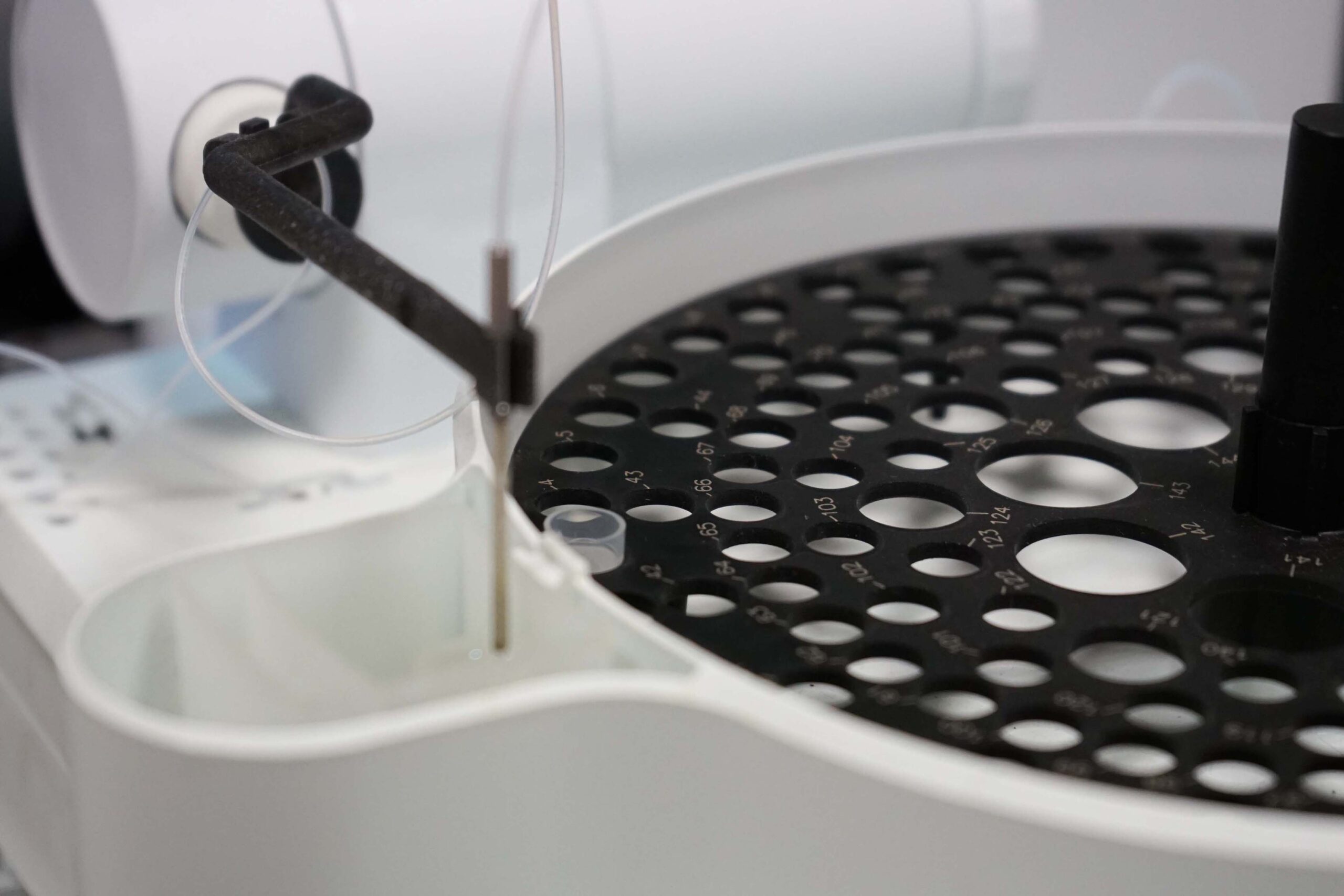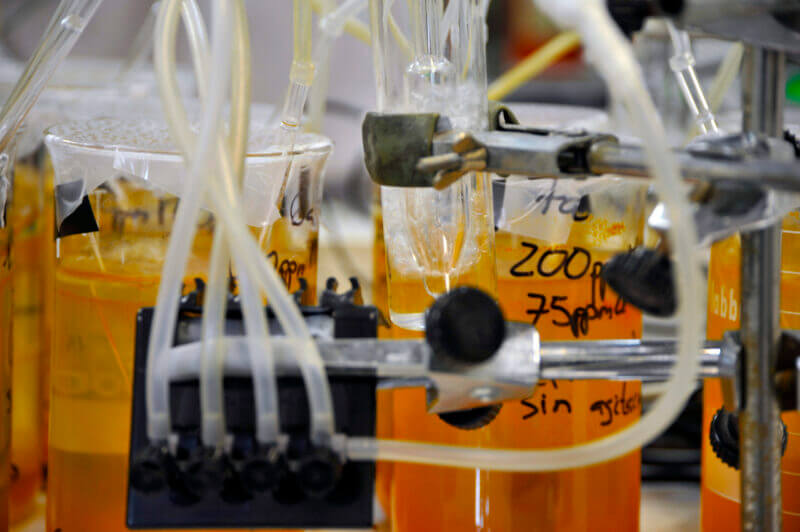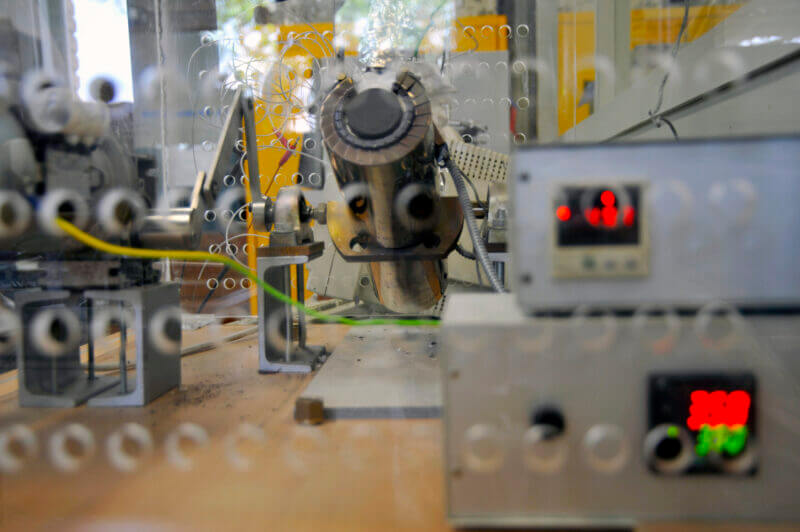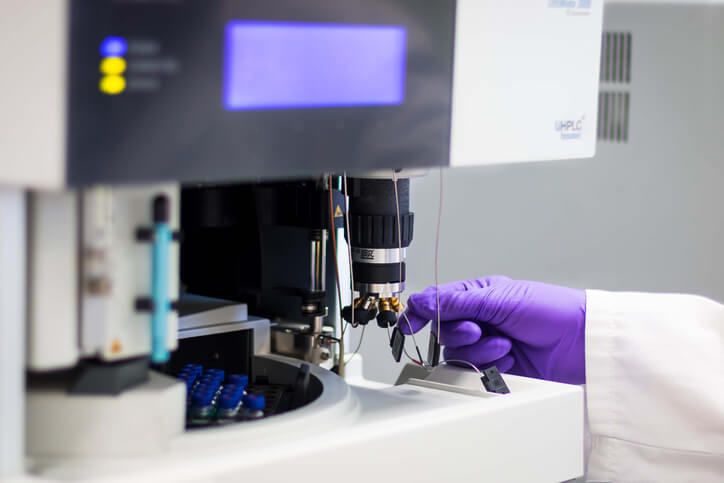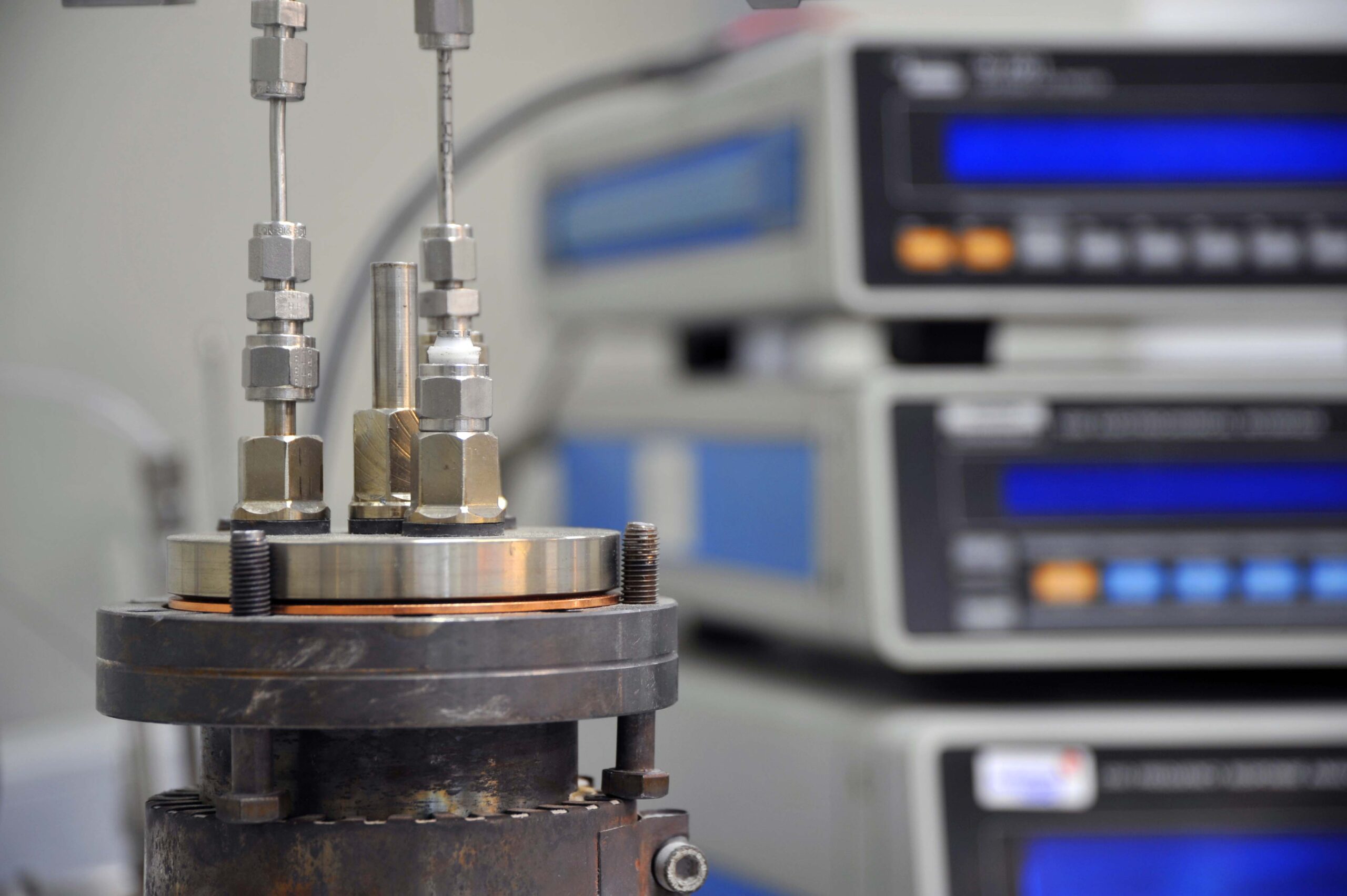
Laboratory dedicated to the study of corrosion phenomena on materials in industrial plants and to the development of chemical cleaning processes. The nature and chemical composition of inorganic materials is studied by electron microscopy with microanalysis. Electrochemical analysis techniques are also used.
Equipment and technologies
Its equipment and the team’s experience are used to study of metallic materials surfaces that present corrosion phenomena, as well as the application of electrochemical techniques in the analysis of various matrices or products.
- Analysis by electron microscopy with SEM-EDS microanalysis
- Studies of materials corrosion , to identify possible origin causes
- Study of metallic materials quality
- Identification of the chemical nature of impurities in chemical products
- Study of corrosion inhibitors
- Research on electrochemical sensors
- Tests for formulation corrosion rate determination
- Determination of metal traces by polarography
- Development and validation of methods based on electrochemical techniques
- Corrosion tests according to Part III, Subsection 37.4 of the “Manual of Tests and Criteria” of the United Nations Recommendations on the Transport of Dangerous Goods
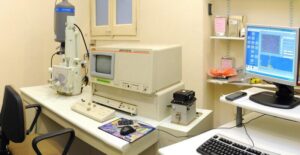
Equipment and technologies
- Scanning Electron Microscope Jeol JSM 5310
- EDS Microanalysis Oxford Inca Energy
- Polarograph Metrohm 884 Professional VA
- Controlled atmosphere glove box MBRAUN UNILAB 7178
- Gas mixing station with Bronkhorst EI-Flow mass flow controllers from 10 mL/min to 2000 mL/min
- Buehler Isomet 1000 Precision cutter
- Electrochemical interfaces: potentiostats, galvanostats,frequency response analysers (FRA), multimeters










